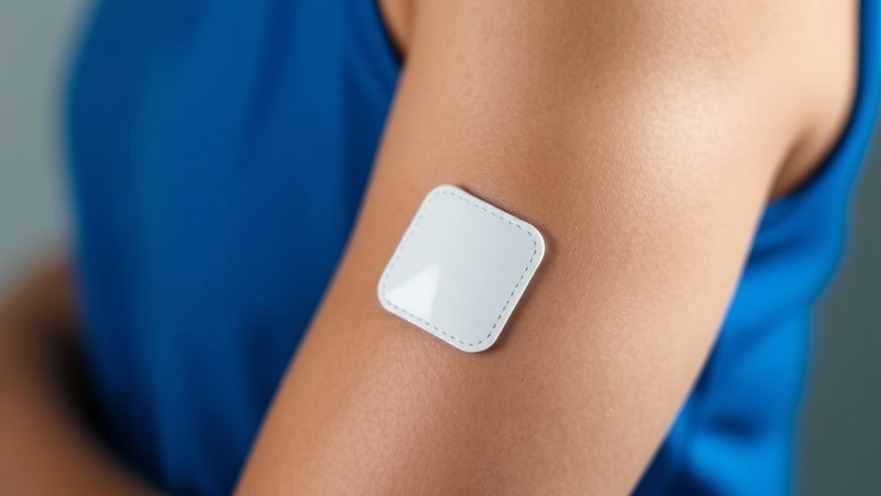
Revolutionizing Diabetes Management with Technology
The recent approval of Medtronic's Simplera Sync CGM sensor by the FDA marks a significant milestone in diabetes management technology. This innovation not only enhances the MiniMed 780G insulin delivery system by offering users a new CGM option but also underscores the growing need for more accessible and user-friendly diabetes management tools. The integration of Simplera Sync with the MiniMed 780G allows patients to benefit from a seamless glucose monitoring experience that is designed to improve their quality of life.
What Sets the Simplera Sync Apart?
The key features of the Simplera Sync sensor that make it stand out include its disposable nature and a two-step insertion process, eliminating the need for fingersticks. This is especially important for patients who struggle with frequent blood sugar testing and are looking for easier ways to monitor their glucose levels. By removing the pain and inconvenience associated with traditional monitoring methods, the Simplera Sync not only improves patient compliance but also enhances overall satisfaction with diabetes management.
Implications for Concierge Medical Practices
For concierge medical practice owners, the approval of the Simplera Sync sensor represents an opportunity to expand their service offerings. As patients become increasingly aware of advancements in diabetes technology, there is an emerging demand for practices that can provide the latest tools and techniques for managing chronic conditions. By integrating this innovative technology into their patient care models, concierge practices can differentiate themselves from competitors and solidify their reputation as leaders in providing cutting-edge healthcare solutions.
A Market Trend Towards Personalized Care
The MiniMed 780G system, with its adaptive algorithm and meal detection technology, is part of a broader trend towards personalized medicine. This approach allows for real-time adjustments to insulin delivery based on patients' unique glucose responses, making it easier for them to maintain optimal blood sugar levels. Reports indicate that users can achieve time-in-range levels above the recommended international goals, highlighting the system's efficacy in promoting better health outcomes.
Future of Diabetes Management: Insight and Predictions
As we look forward, the implications of such technological advancements in diabetes care are vast. The capability of the MiniMed 780G to adjust insulin delivery autonomously signifies a shift toward more sophisticated diabetes management solutions. This trend not only enhances patient autonomy but also aligns with the growing expectations of patients for more dynamic and responsive healthcare experiences. Concierge practices poised to embrace these innovations will likely see increased patient engagement and loyalty.
Challenges Ahead: Addressing Implementation Barriers
Despite the promising aspects of the Simplera Sync and its integration with the MiniMed 780G, several challenges may arise in its implementation in clinical practice. Patient education will be paramount to ensure the effective use of these new technologies. Additionally, practices will need to navigate insurance coverage and reimbursement hurdles associated with new devices. By proactively addressing these potential barriers, concierge practices can better prepare themselves to incorporate this technology into their service offerings.
Conclusion: Steps for Concierge Practices
With the arrival of the Simplera Sync sensor, now is the time for concierge medical practice owners to review their diabetes management services. Providing patients with access to cutting-edge tools can enhance care, improve outcomes, and bolster their reputation in the community. It’s essential to invest in training for staff on the latest advancements in diabetes management technology so they can adequately support patient needs. As the landscape of diabetes care continues to evolve, those practices that adapt swiftly will find themselves better positioned to meet the expectations of tech-savvy patients.
 Add Row
Add Row  Add
Add 




Write A Comment